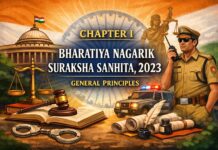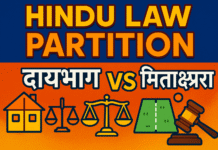Whether a murderer inherit the property of a Hindu dying intestate? Explain the rule of law with regard to a murderer’s qualification or otherwise as regards succession.
Ans. Murderer disqualified from inheritance.—Section 25 disqualifies a murderer from inheriting the property of the person murdered. The object of Section 25 of the Act is that a person who has committed the murder or has abetted the commission of murder of the’ intestate or who has murdered or abetted the murder of a preferential heir ir. furtherance of his scheme of succession, shall not be entitled to succeed to the properties of the person murdered. This section is not based upon any text of Hindu Law but upon the decision of Privy Council in Kenchava v. G’irimatopyu 1(1924) 51 IA 3681 where it was held that upon the principles of equity, justice and good conscience the murderer should be disqualified from succeeding to the estate of the person whom he has murdered and therefore a murderer is excluded from the inheritance to the aperty of a Hindu dying intestate. In the following cases a murderer is disqualified from inheritance—(i) when he commits murder; (ii) when he abets the commission of murder, he is debarred from—(a) inheriting the property of the person murdered, (b) inheriting other property in furtherance of the succession to which he or she committed or abetted the commission of the murder. To the property of the person murdered i.e. the victim, as regards inheritance to the victims property a murderer is disqualified as a matter of public policy. A person who abets the murder is on the same footing as a murderer. The disqualification of the murderer or the person abetting the murder is further extended to the intermediary who Stands in the way of the murderer succeeding to the property of a relation. When a person who had participated in a murderous attack on his father along with others who were convicted of murder in that case, was given benefit of doubt and was convicted under Section 324, I.P.C., instead of Section 302, I.P.C. even then, the disqualification mentioned in Sections 25 and 27 will come into play and operate against that person inheriting or deriving any beneficial interest in the property possessed or held by his father IN. Seetharamiah v. Ramakrishnaiah, AIR 1970 AP 407.






![Maneka Gandhi v. Union of India [1978] 2 SCR 621: A Watershed Moment in Indian Constitutional Jurisprudence](https://www.infipark.com/articles/wp-content/uploads/2026/02/Image-Feb-18-2026-10_47_59-AM-218x150.jpg)







